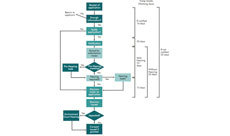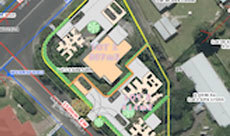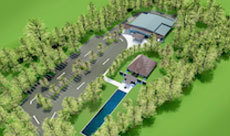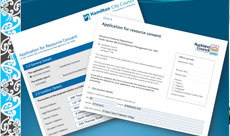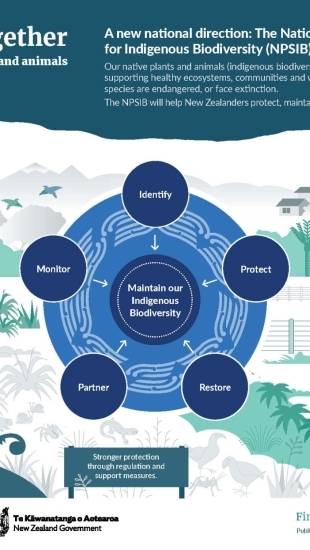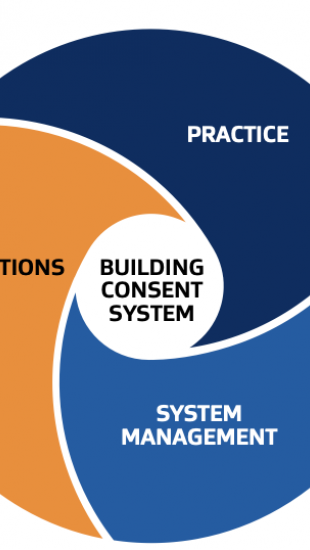Food Act 2014

Food Act 2014
Food businesses are currently governed by the following legislation:
• Food Hygiene Regulations 1974 and Food Act 1981 – for existing food business until they transition to Food Act 2014.
Post 1 March 2016 all new food business (new build and change of ownership) will be required to comply with legislations listed below:
· Food Act 2014
· Food Regulations 2015
· Food Notices 2015
· Any Amended Council Food Safety Bylaw
· Australia New Zealand Food Standard Code (Code)
Resource Consents
Your proposed food business location must comply with the district and regional Plans or resource consent will be required. If resource consent is required, this must be obtained before constructing and operating your business. If you believe your business will comply with the district and regional plans, you can seek confirmation of this from Council or apply for a certificate of compliance. For more information on district plans, regional plans, resource consents and certificates of compliance, you may contact Gulab.
Building Service
Your food premise must comply with the Building Act 2004. You may also need to obtain a building consent before you start any construction, renovation or ‘change of use’.
The Food Act 2014 came into force on 1 March 2016. It takes a new approach to managing food safety. Find out more about the Food Act and what it means for you.
Everyone working in the food industry has a responsibility to make sure that the food we buy is safe and suitable to eat. The Food Act 2014 takes a new approach to managing food safety. Find out more about the Act and what it means for you.
New Act enhances food safety
The Food Act 2014 promotes food safety by focusing on the processes of food production, not the premises where food is made.
A central feature of the new Act is a sliding scale where businesses that are higher risk, from a food safety point of view, will operate under more stringent food safety requirements and checks than lower-risk food businesses.
The new law recognises that each business is different – unlike the old Food Act 1981 and its one-size-fits-all approach to food safety. The new Act means that a corner dairy operator who reheats meat pies won't be treated in the same way as the meat pie manufacturer.
The Act brings in new food safety measures:
• Food Control Plans(FCPs) for higher-risk activities
• National Programmes(NP) for lower-risk activities.
The answers you give in the tool help determine where your activity or business fits under the Act. It will tell you whether you have to operate under:
• A food control plan (FCP)
• A national programme
• The Animal Products Act
• The Wine Act
A food control plan (FCP) sets out what steps a business making or selling higher-risk foods needs to take to make safe food. You use it to identify risks, and to show how they're being managed. It means customers will know your food is safe – and it can help you create a successful food business.
There are 2 types of plans:
• Template food control plans(template FCPs) – you can build your plan from templates supplied by MPI.
• Custom food control plans(custom FCPs) – you develop your own plan.
An FCP is a written document that sets out what steps a business needs to take to keep food safe. Many businesses can use an FCP template, provided by the Ministry for Primary Industries (MPI). Others will need to develop their own FCP.
You'll need to register your plan each year and have a regular check (verification) to make sure your plan is being followed.
If you are starting a new business that needs a food control plan, you must be operating under the new Act and have your plan in place from 1 March 2016.
If you are already running a business that needs an FCP, the transition timetable sets out when you will need to start making changes to bring your food safety practices in line with the Food Act 2014.
Existing businesses will shift to the new Act between 2016 and 2019.
Your Food Safety Programme (FSP) will be deemed to be a food control plan from 1 March 2016 until 28 February 2019. You have until 30 November 2018 to apply to register your business under the new Act.
The new Act includes a better food safety compliance system than the Food Act 1981. Minor and technical offences will be dealt with faster and more effectively, and penalties for the worst offences have been strengthened.
Under the Food Act 2014, anyone who sells or provides food needs to make sure it is safe and suitable to eat. Safe and suitable food is defined in the Act. In summary it means that:
• 'safe food' won't make people sick
• 'suitable food' meets compositional, labelling and identification requirements and is in the right condition for its intended use.
Inspection is by observation on the day, including a checklist and reality check. Verification is systems based, reviewing procedures, records and a reality check.
Any dispute over a verification outcome can be appealed via the Council and Ministry for Primary Industries (MPI). However, MPI have no direct control over a grade, even though the grade is determined by the verification outcome. The Council has sole discretion in the determination of the grade (e.g. an appeal cannot be made to MPI for the Council to award a particular grade to a premises).
For a new business a Council EHO will come and verify your FCP within one month of your registration being approved. For existing food businesses transitioning to FCP, the verification will take place within one year of your registration being approved. Verifications will have three possible outcomes; Acceptable, Unacceptable and Non-Compliance.
From 1 March 2016, business operating an FCP will continue to receive a grade for their food business. The Verifier (EHO) will explain the requirements at the initial verification. The grade must be conspicuously displayed at the principal entrance so the public can view it before they enter the premises.
National Programme
There are 3 levels of national programmes, which are based on the food safety risk of the activities a business does:
• Level 3 – higher risk.
• Level 2 – medium risk
• Level 1 – lower risk
Register a National Programme with Council.





A quick checklist:

• Find a location for your proposed food business
• Proposed Food Activity will fit into which Risk Base Measure FCP or NP?
Check “where do I fit tool” https://www.mpi.govt.nz/food-safety/food-act-2014/where-do-i-fit/
• Do you need building or resource consent?
Check out the building and planning
• Will you be selling alcohol?
Check the alcohol licensing and apply for a licence if you intend to sell alcohol -
• Will you have outdoor dining?
Check the Outdoor Dining page on Council’s website and apply for a licence if you intend to have outdoor dining
• Have your received all approvals from Council?
• Have you met all the structural requirements for a food premises?
• Contact Building inspector for inspection and submit paper work for Compliance Certificate (CCC) or a Certificate for Public Use (CPU) Received CCC or CPU
• Register Template Food Control Plan (will need approval from Council) or
• Register National Programme (will need approval from Council) or
• Custom Food Control Plan (you will need to have your Plan approved by MPI)
• Receive Notice of Registration from Council and Pre-verification checklist
• Within one month of registration a verification of your Food Control Plan will be carried out by your Environmental Health Officer or
Within one month of registration a verification of your National Programme will be carried out by your chosen verifier

